
Kidney/ Renal Function Test, Extended
What is Extended Kidney/Renal Function Test
Extended renal function tests are a series of blood and urine tests that are done to understand how well your kidneys are working to remove waste products from the body. This includes complete blood count, complete urine examination, and renal function tests.
Kidneys are an important organ serving several functions in the body. Kidneys remove waste products from the body, including drugs. They help balances the body fluids and help in regulating blood pressure. Kidneys promotes good health of bones by producing an active form of Vitamin D, and also control the production of red blood cells.
Symptoms of Kidney Dysfunction
This test is indicated if you experience the following symptoms:

Blood in the urine (hematuria)
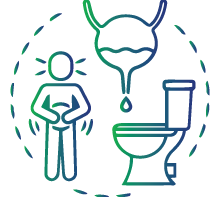
Painful urination
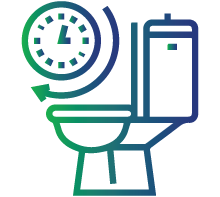
Frequent urination
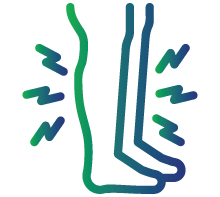
Muscle cramps or pain
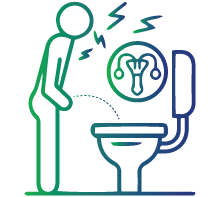
Difficulty urinating

Fatigue

Unexplained swelling in different body parts
Which tests are included in the Extended Kidney Function Test?
An extended kidney function test includes three tests. They are:
Compete Blood Count (CBC)
-
It is a blood test that looks at the overall health condition of an individual and helps in detecting a wide variety of medical conditions such as anemia, infection, and leukemia. It is taken to investigate the count of red blood cells, white blood cells, hemoglobin, platelets, and hematocrit, etc.
Complete Urine Examination (CUE)
-
It is a urine test that helps in detecting abnormal constituents of urine, if any. The results of this test may help detect a kidney dysfunction or infection. It is done to investigate parameters such as red blood cells, bilirubin, bacteria, pus cells, etc in the urine.
Kidney/Renal function test (RFT)
-
It comprises both, blood and urine test that measures how efficiently your kidneys are working. Most of these tests measure the glomerular filtration rate of the kidneys which gives an estimation of the efficiency of your kidneys in clearing waste from your body. It is done to investigate parameters such as proteins (albumins and globulins), blood urea nitrogen (BUN), calcium chloride, creatinine, potassium, sodium, urea, and uric acid, etc.
Who should get tested?
You may need this test if you are/ have:

Above 45 years of age
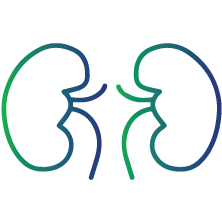
Abnormal kidney structure

Obese
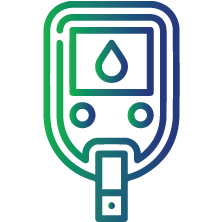
Diabetes mellitus
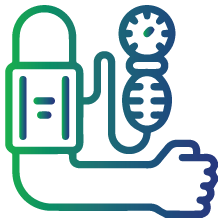
Hypertension
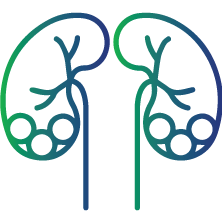
Kidney stones
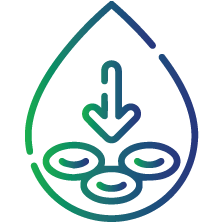
Anaemia

Family history of kidney diseases
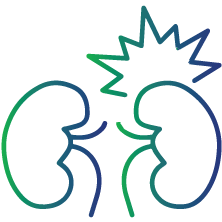
Past history of kidney injury/diseases
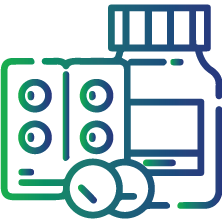
Using medicines that affect kidney functioning

Smoking

Alcoholic
Test preparation:
Two types of samples are required for an extended renal function test – A blood and urine sample.
Blood test: Your healthcare provider will collect a blood sample by inserting a small needle into a vein in your arm. A few mL of blood is collected in a sterile test tube. You should fast for at least 8 - 10 hours before taking this test.
Urine test: You will be given a clean and sterile container and instructed to collect your urine through a mid-stream method, i.e. after passing a small amount of urine, begin collecting urine into the container. Finish passing rest of the urine into the toilet after collecting the sample.
Please tell your healthcare provider if you are taking any medicines before taking the test.
Interpretation of the test results:
Complete Blood Count
|
Parameters |
Normal ranges |
|
Red Blood Cells (RBCs) |
4.2 to 6.1 million cells/mcL |
|
White Blood Cells (WBCs) |
4,500 to 11,000 cells/mcL |
|
Platelet |
150,000 to 450,000/dL |
|
Hemoglobin (Hb) |
13.8 to 17.2 gm/dL (male) 12.1 to 15.1 gm/dL (female) |
|
Hematocrit |
40.7% to 50.3% (male) 36.1% to 44.3% (female) |
Complete Urine Examination
|
Parameters |
Normal ranges |
|
White blood cells |
<2-5 WBCs/hpf |
|
Red blood cells |
<2 RBCs/hpf |
|
Bacteria/yeast/parasites |
None |
|
Casts |
0-5 hyaline casts/lpf |
|
Crystals |
Occasionally |
*HPF – High power field
*LPF – Low power field
Kidney (Renal) Function Test
|
Parameters |
Normal levels |
|
Estimated GFR (eGFR) |
Greater than 90 mL/min/1.73 m2 |
|
Serum creatinine |
0.6–1.1 mg/dL in women and 0.7–1.3 mg/dL in men |
|
Blood urea nitrogen (BUN) |
7–20 mg/dL |
|
Microalbuminuria |
Less than 30 mg |
|
Albumin-Creatinine Ratio |
Less than 30 mg per gram. |
|
Creatinine clearance |
88–128 mL/min for healthy women and 97–137 mL/min for healthy men. |
Deviations from normal results:
Abnormalities in any of the included tests may be an indication of an underlying health problem or an issue affecting the kidneys.
- Abnormal levels of hemoglobin, RBC count, or hematocrit may be an indication of anemia, heart disease, or iron deficiency.
- High white blood cell count may be an indication of infection or inflammation in the body.
- Presence of pus cells, RBCs, or WBCs in the urine may be an indication of urinary tract infections.
- Abnormalities in the serum creatinine or proteins in the urine may be an early sign of kidney diseases.
FAQs
What is the turnaround time (TAT) for an extended kidney function test?
The test results of extended kidney function tests are usually available within 2 – 3 working days after the sample collection. However, it could take a little longer at times.
Are there any risks associated with extended kidney function tests?
No, there are no potential risks associated with extended kidney function blood tests. However, all blood tests involve negligible risks such as feeling a slight sting or bruise at the site of sample collection. It usually resolves within a few minutes to a couple of hours. Rarely, the site can become infected.
Urine tests does not have any associated risks. It is a painless and non-invasive method of sample collection.
My test results show pus cells in the urine. What does it mean?
The presence of pus cells in the urine is an indication of an underlying infection somewhere in your urinary tract such as a urinary tract infection (UTI). Symptoms of urinary tract infection include a burning sensation while urinating, urine with a strong smell, blood in urine, etc.
What precautions can be taken to maintain normal kidney functioning?
Lifestyle changes, including reducing the intake of red meat, increasing the intake of lean protein, staying hydrated, eating more fiber, etc., can be some precautionary measures to promote proper functioning of kidneys.
Are results from extended kidney function tests considered conclusive when they show the existence of UTI?
An extended kidney function test provides information on the presence or absence of bacteria, blood, or even glucose with respect to kidney function. To confirm the UTI, one is advised to undergo urine culture test, which helps in identifying the actual causative organism of the infection.

